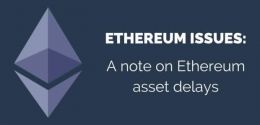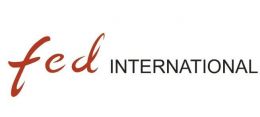Ether is unlikely to fare much better in these conditions, but regardless, Forough believes exposing the women to ether (and cryptocurrency broadly) has priceless educational value.
"I personally think it is good to have digital literacy or financial literacy, the knowledge, especially for women in Afghanistan that are limited from accessing a lot of financial resources, such as banks," Forough said. "It's an amazing technology, not only in case of financial aspects but also in terms of using blockchain technology to create different products that could tackle, maybe, one of these [local access] issues."
Plus, because the Bounties Network doesn't only offer technical assignments (there are translation jobs and other projects on the site), the girls might better engage with the ethereum community as they learn to code.
"Because it's a task, which you can create for anything with a reward at the end, you could potentially use it for so many different collaborations," Simona Pop, head of community at Bounties Network, told CoinDesk.
Case in point, the partnership has launched a MetaMask course for CTI students and will soon create an online store where students can buy and sell the products and services they and their classmates develop in the broader course.
A new organization called the Capital Markets and Technology Association (CMTA) has been formed in Switzerland in order to facilitate the use of blockchain technology in financial markets, according to a press release published June 12.
The CMTA was established in Geneva by Swiss leader in online banking Swissquote, market software provider Temenos, and the country’s largest law firm Lenz & Staehelin. According to the press release, the CMTA will focus on creating open standards and toolkits that can be employed by various types of companies to raise capital by applying new technologies and digitalization.
Jacques Iffland, CMTA's chair, and partner at Lenz & Staehelin, commented on the company’s establishment:
"The blockchain technology has the potential to reduce the complexity of the capital markets system and lower the barrier of entry for start-ups. The current lack of legal certainty is slowing – and potentially compromising – its development in this field. By defining a set of industry-supported, open standards, the CMTA aims to facilitate access to funding for businesses, ultimately contributing to value creation throughout the economy."
The CMTA has reportedly been established as a not-for-profit, non-governmental association, with leading companies from across different industry sectors on its committee. The founding parties are active in different areas, and each of them pursues their own purposes with the integration of blockchain.
Switzerland has long been attracting attention as a crypto and blockchain-friendly country thanks to the “Crypto Valley,” a center of fintech, blockchain, and digital currency activity in the canton of Zug.
The Swiss city of Zug announced it will conduct a blockchain-powered trial municipal vote this summer. The upcoming trial vote will implement the city’s digital ID (eID) system that was launched in November 2017. The system will allow citizens to vote via their mobile devices.
Earlier this week, the country voted against the so-called “sovereign money” referendum, which had it passed, would have given the country’s central bank sole control over creating money, disqualifying commercial banks from “creation” money for credit and loan purposes.










